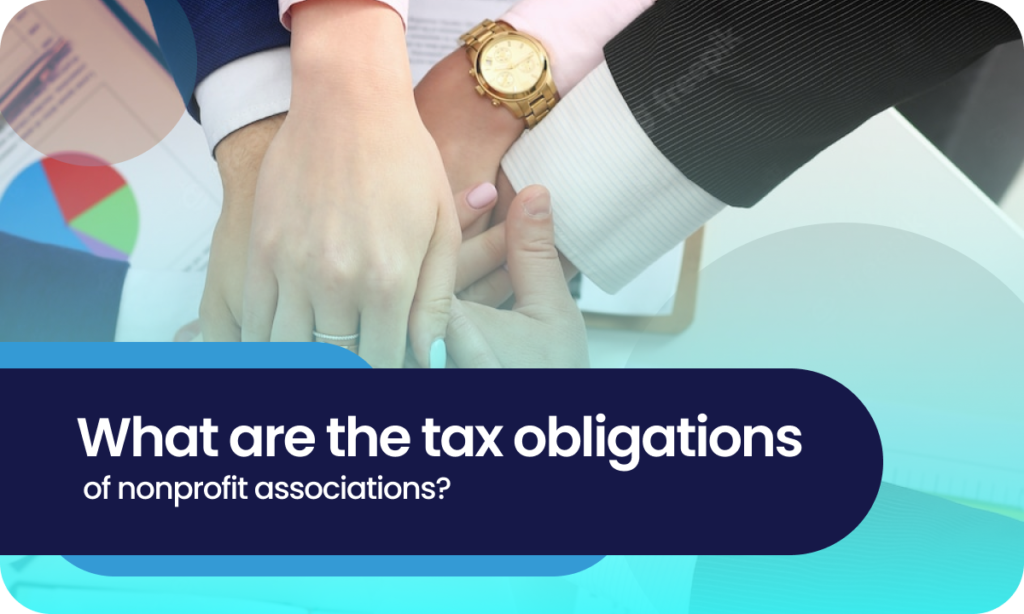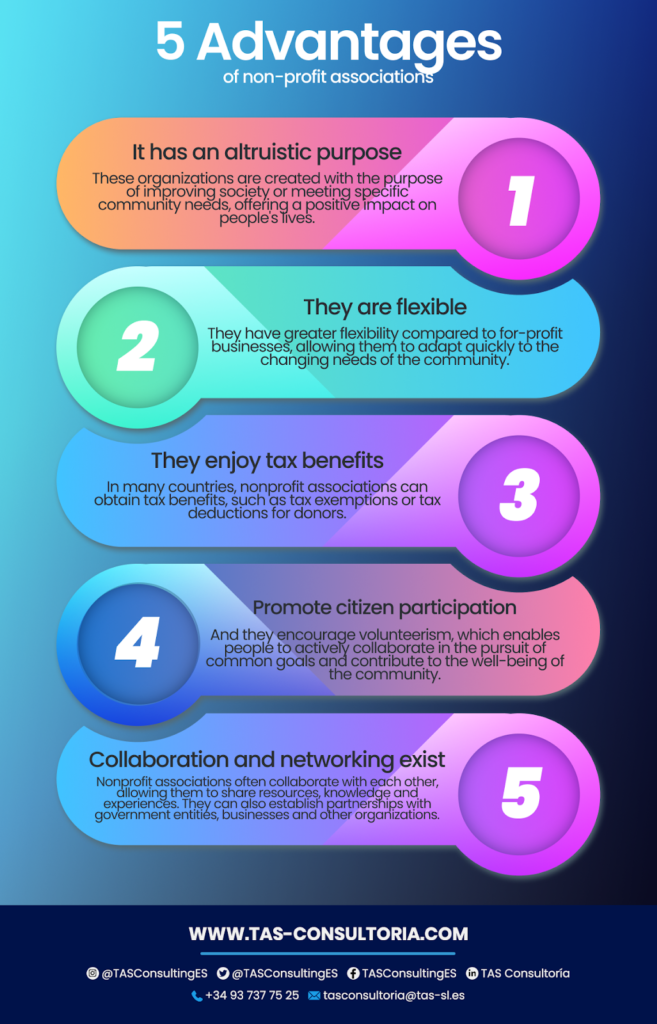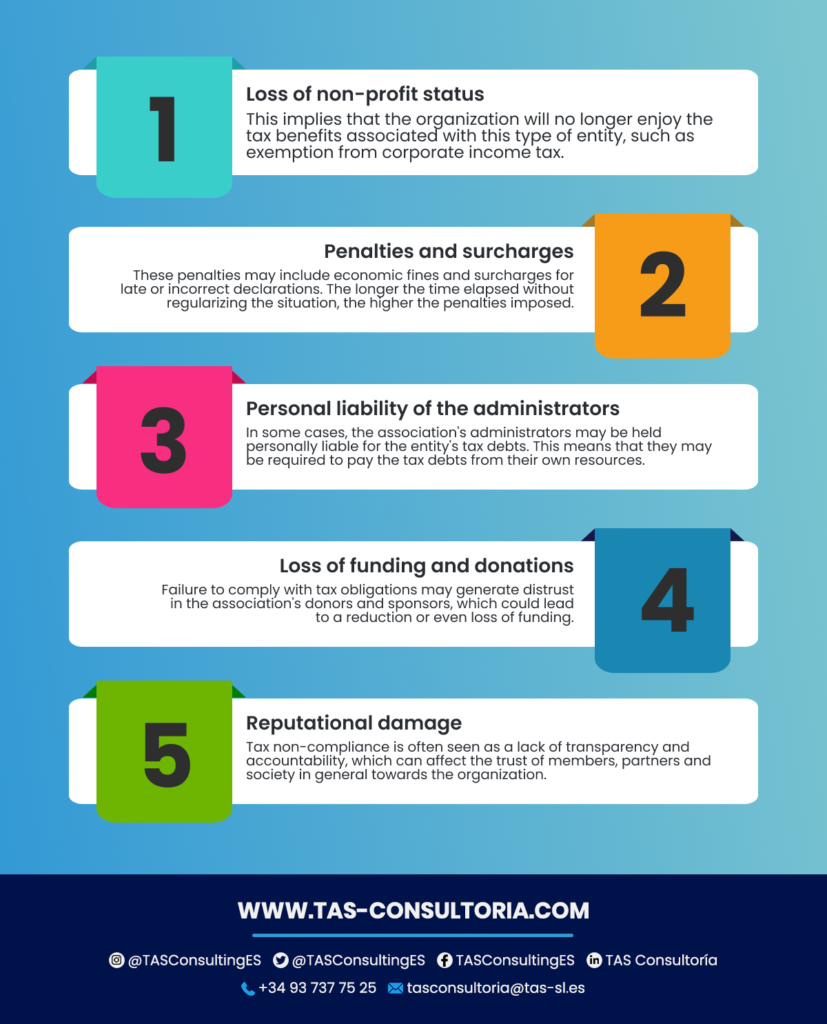
Non-profit associations are legal entities characterized by the fact that their purpose is not economic profit, but rather social, humanitarian, community or cultural benefit. These organizations are usually in the hands of private entities and not in the service of the government. However, despite all their benefits, non-profit associations also have tax obligations. Do you want to start your own and did not know about this aspect? Here we give you the information you need to know, let’s go!
What are non-profit associations?
A non-profit association is a legally constituted organization with the objective of carrying out activities of public interest or community benefit. All this without seeking to obtain financial gain for its members.
These organizations are dedicated to promoting social, cultural, educational, scientific, religious, sports or other causes. They also often rely on donations, grants and volunteerism to finance their operations.
In this sense, non-profit associations present distinctive characteristics that differentiate them from other forms of organization. These are:
- Its primary purpose is collective benefit or the achievement of a common cause, rather than individual gain.
- They usually have a democratic and participatory structure, where members make decisions collectively.
- They may be exempt from certain taxes, provided they comply with the legal requirements established by each jurisdiction.
You may also be interested in: 10 steps to start your own company
5 advantages offered by non-profit associations
Non-profit associations have many advantages that can benefit you and the community in which they operate. Among the main advantages are:

With these benefits, we can deduce that non-profit associations seek community welfare. They play a fundamental role in society by addressing various issues and contributing to their resolution for the progress of the community.
What tax obligations must non-profit associations comply with?
In Spain, non-profit associations are subject to certain tax obligations. These vary depending on the nature and size of the association, as well as the activities it performs.
The following are some main applicable tax obligations:
Registration in the Social Entities Registry
All non-profit associations must be registered in the Registry of Entities of Social Character to obtain the qualification of public utility entity. This grants certain tax benefits, such as exemption from corporate income tax and the possibility of receiving deductible donations.
Corporate income tax (IS)
Non-profit associations are exempt from corporate income tax in most cases. However, it is necessary to file a corporate income tax return to report the association’s income and expenses.
With Law 27/2014 and the subsequent correction made in Royal Decree-Law 1/2015, it is established that these entities are obliged to file the IS and declare all their income both exempt and non-exempt.
Value Added Tax (VAT)
These associations may be subject to VAT depending on the activities they perform and the services they offer.
In general, activities of a social, cultural, educational or sporting nature are exempt from VAT. However, it is important to consult the current regulations to determine whether specific exemptions apply.
Withholdings and prepayments
If the association makes payments to third parties, such as salaries to employees or fees to suppliers, it may be obliged to make withholdings and payments on account. It is important for you to know that these withholdings may be related to IRPF or IS.
Informative declarations
Depending on the circumstances, the association may be required to file informative declarations. These are the declaration of transactions with third parties (form 347) or the annual declaration of donations received (form 182).
Accounting obligations
Non-profit associations must keep proper accounting records and comply with accounting obligations. Specifically, those established in the Code of Commerce. These would be the preparation of balance sheets, profit and loss accounts, annual report, among others.
It is important to note that tax obligations may vary and are subject to changes in current legislation. Therefore, it is recommended to seek advice from a professional specialized in tax matters. In this way, it will be possible to guarantee the proper compliance with all the corresponding obligations.
You may also be interested in: Form 036 and 037: registering with the Tax Authorities
What happens if nonprofit organizations do not comply with their tax obligations?
The fiscal obligations of this type of association must be fulfilled in order to maintain its legal status. Not only that, but also to comply with tax regulations. Failure to comply with these obligations could have negative consequences.
Some of them are described below:

You may also be interested in: Double taxation in Spain
Do you have a non-profit association and want to keep up to date with your tax obligations? Contact our professionals at TAS Consulting through tasconsultoria@tas-sl.es.
Our team of tax professionals is ready to advise you on tax matters and guide you through every step of the process. The best part? We will support you according to the specific needs of your business. What are you waiting for to make your business idea a success?




Your email address will not be published .
Required fields are marked with *